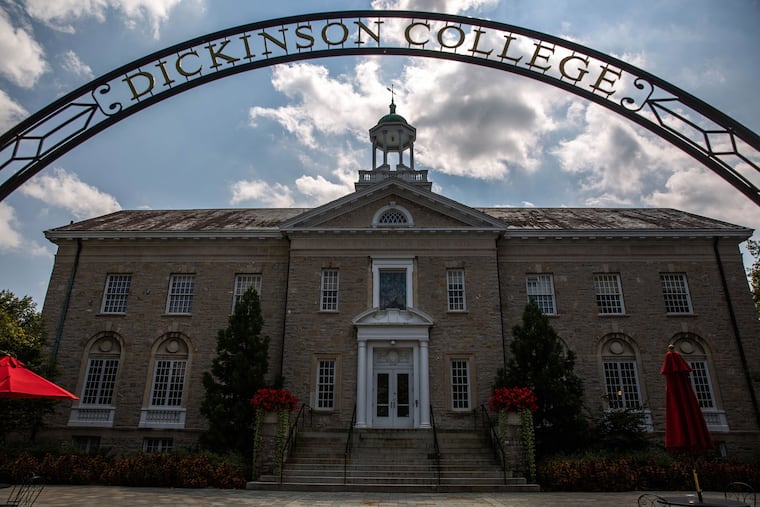Colleges’ grand promise of ‘test-optional’ admissions is self-serving | Opinion
“Test-optional” will always mean “test-preferred,” despite universities trying to score cheap equity points.

It’s all too easy for a university to claim that test-optional increases access and opportunity in admissions. One way this is playing out is the move of many schools to become “test-optional,” with more than 600 schools going this route for the 2020-21 application season.
This looks like good news: More universities are honoring that a large percentage of applicants don’t have the resources to take and retake standardized tests. Never mind a Stanford study that found that admissions officers respond more favorably to essays by students from wealthier households — exposing that socioeconomic status influences all elements of college admissions, not just test scores.
» READ MORE: With testing requirements relaxed, applications soar at selective colleges
Yet, adopting a “test-optional” policy is an easy way for a college to claim equitable admissions practices while maintaining the status quo. The numbers tell the story. As colleges disclose their admissions for the Class of 2025, the data show that applicants who submit standardized test scores have a leg up. For example, Georgetown only admitted 7.34% of early applicants who did not have test scores; for the University of Pennsylvania, the percentage was higher (24%) but still overall low.
As more colleges adopt “test-optional” admissions policies, more applicants are taking them at their word. Of students who applied via the Common App through Feb. 15, only 44% submitted ACT or SAT scores, down from 77% last year.
But as the data show, “optional” really means “preferred.” Applicants who take standardized tests do gain a competitive advantage of providing the university with more data points to assess. If colleges were truly committed to not preferencing resourced students as evidenced by test scores, they would adopt a “test-blind” policy and not look at test scores at all.
Test-optional policies are self-serving. The university gets bragging rights; a test-optional policy helps them appear considerate to applicants’ various socioeconomic levels and the realities of the pandemic, during which health and money concerns kept many students away from test halls. But this appearance doesn’t translate into a meaningful change to admissions.
As a college admissions adviser, I advise my clients to prepare for and take standardized tests, just as they would be were the test required. I would be disadvantaging my clients by advising otherwise.
With the pandemic, top colleges saw an unprecedented increase in applications. How can a university tell if an applicant is “serious,” or if they’re simply applying to the school because the process is relatively easy and they are applying to a higher volume of schools across the board? Standardized tests make an applicant appear more serious to the university. Thus, the student who can jump through more hoops to provide test scores is privileged, and the test-optional policy means nothing.
» READ MORE: Haverford College scraps standardized test requirement amid pandemic
How can colleges “get real” about their admissions policies?
If colleges are serious about not favoring students with the means to take and retake standardized tests, they will adopt test-blind rather than test-optional policies. A test-blind policy means that admissions counselors are not looking at anyone’s test scores. Standardized test scores are a nonfactor in admissions.
Inside Higher Ed reports that as of September, 59 schools had adopted test-blind procedures, including Loyola University and Reed College. When Loyola announced it was going test-blind in May of 2020, only two other schools had this as a stated policy. In light of the increased difficulty students had gaining access to standardized tests during the COVID-19 pandemic — limited testing sites, health risks associated with taking the tests, last-minute cancellations, etc. — more universities followed Loyola’s example.
Whether or not these policies remain in place after the pandemic remains to be seen. Reed College has adopted the policy for two years; Dickinson College went test-blind for the past year. Until going test-blind becomes permanent and more widely adopted, my advice to college applicants remains the same: prepare for and take the SAT or ACT, regardless of a school’s test-optional policy.
The test-optional policy benefits a university’s brand first and foremost, not students, because it’s not truthful and privileges those who are already privileged. Test-optional will always mean “test-preferred.”
Aviva Legatt is an Ivy League admissions expert, University of Pennsylvania faculty member, and the author of “Get Real and Get In: How to Get Into the College of Your Dreams by Being Your Authentic Self.”